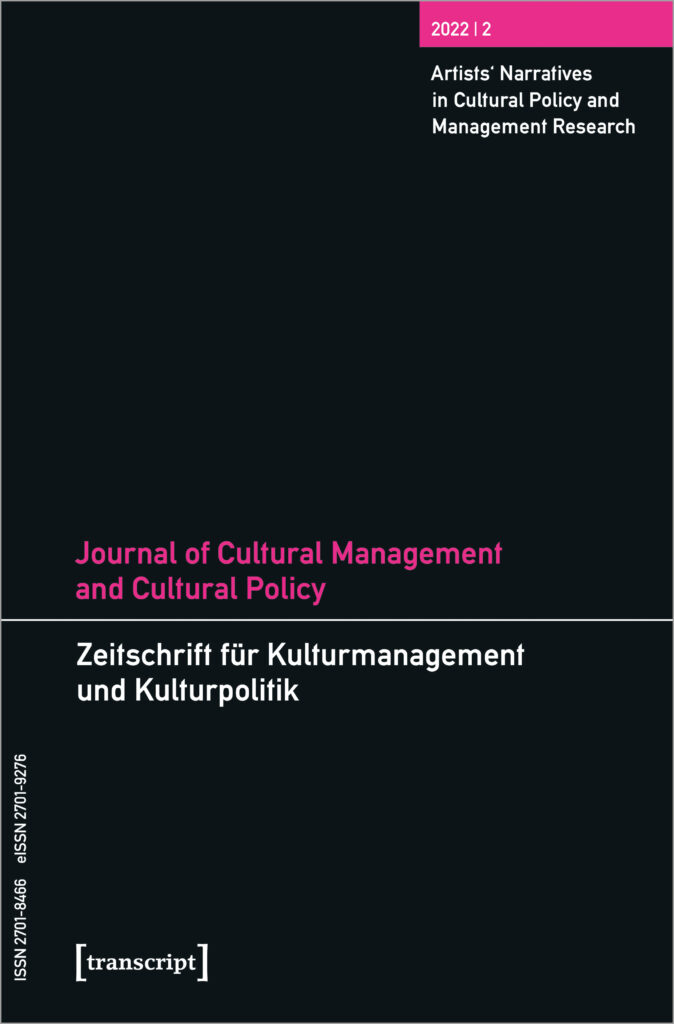Research Article
The Devaluation of the artist
Abstract
Much has been written about artists’ precarity and dependency on institutions. Precarity is a de-economisation of freelance artists and ‘asymmetry’ on which cultural economy and arts policy relies. Speculation early in 2020 was that Covid-19 drew attention to the unethicality of these relationships but what has changed? Here, pre-pandemic and rapid response research on UK freelance theatre artists are brought together to suggest that the #CultureReset has been little more than a resetting of the stage with all props and players returning to previous positions.
Pre-pandemic, the separation of artists from the language, policymaking, business and decision-making of professional subsidised theatre represented an unethical rationality. Covid-19 interrupted and transformed all cultural activity with a disproportionate impact on freelance artists, particularly in performing arts. Yet during 2020 and 2021, previous value systems (the rationality of the field) were maintained. Early hopes for improved conditions diminish as institutions and governments restore previous behaviours, counter to the ‘new normal’ advocated. A global crisis could not change the ‘value problem’ of artists in the arts. Moreover, pity procured for artists during the pandemic has further infantilised and devalued them. These findings call for greater scrutiny of the ethics of arts management and policy and new more collaborative approaches to solving the value problem.
Keywords
2022 (2)
Artists' Narratives in Cultural Policy and Management Research

Related Articles
Imposed leadership in UK funded theatre and the implications for risk and innovation
Journal of Cultural Management 2019 (1)
Research Article
Journal of Cultural Management and Cultural Policy
Research Article
Journal of Cultural Management and Cultural Policy
Essay
Theatre leadership from a communication perspective
Journal of Cultural Management 2019 (2)
Research Article
Questions of Power: Discipline and the Greedy Theatre
Journal of Cultural Management 2019 (2)
Essay
Journal of Cultural Management 2019 (1)
Essay
© 2024, Journal of Cultural Management and Cultural Policy
Keywords
- aesthetics
- higher education
- cultural diplomacy
- career, professional role
- audience studies
- Business
- digitalization, digitization
- diversity
- empirical aesthetics
- entrepreneurship
- development, transformation
- ethics
- Evaluation
- festival
- film
- social change
- ideology
- staging
- communication
- Concert
- creativity
- culture
- arts organizations, cultural organizations
- fincancing the arts
- cultural history
- cultural economy
- art education
- cultural policy
- cultural sociology
- audience development, art education
- arts administration, arts management
- cultural industry
- cultural sciences
- art
- arts research
- curating
- artists
- leadership
- management
- marketing
- market
- media
- methods development
- museum
- music
- opera
- orchestra
- organization
- law
- social cohesion
- community arts
- state
- urbanism
- dance
- theater
- theory development
- tourism
- civil society, third sector


